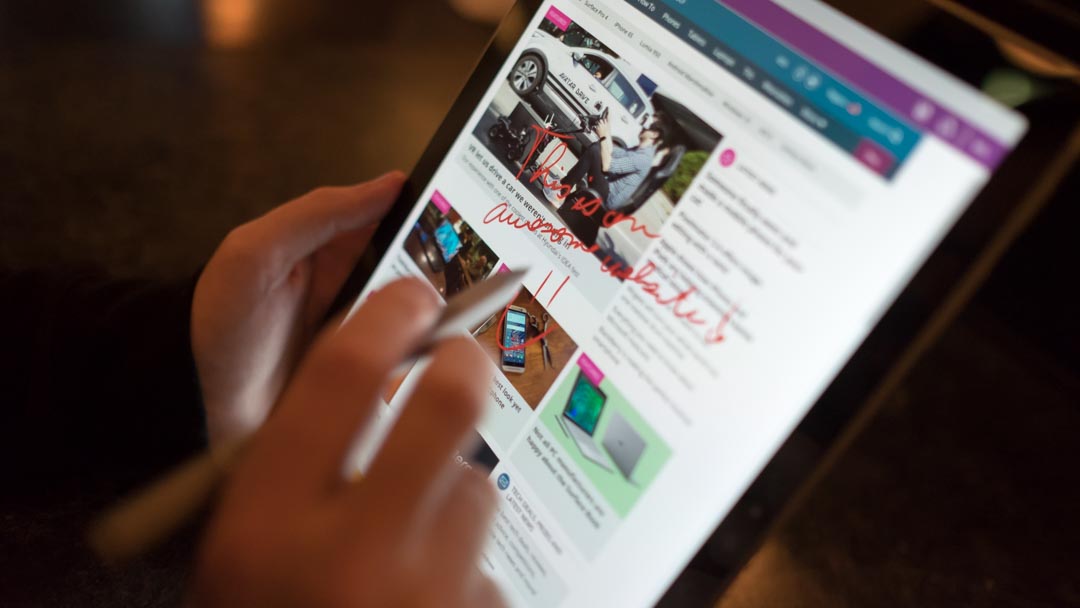Future Microsoft Surface stylus could also act as a password replacement
The pen is mightier than the password…

Sign up for breaking news, reviews, opinion, top tech deals, and more.
You are now subscribed
Your newsletter sign-up was successful
Microsoft may support a different type of secure login for Windows Hello in the future, allowing users to verify their identity by using a stylus, according to a recent patent.
The patent application from Microsoft, which describes a ‘method for authentication with a computer stylus’ (spotted by V3.co.uk), involves the stylus having a unique ‘identity code’ which it transmits to the PC for one piece of the verification puzzle, with the second factor being a pre-defined gesture the user scribbles on the touchscreen.
This could be used to log in to the device, of course, or according to the text of the patent, to “selectively lock access to documents, files, emails, games, entries in a table, applications … responsive to a gesture performed by a stylus”.
Apparently Microsoft would use its N-Trig technology already employed in the Surface Pen for the new security-focused styluses.
- Don't need a fancy Surface? Try these Chromebooks on for size
Third way
This would be an alternative to the login methods which Windows Hello already uses on Windows 10 machines, namely facial recognition (via a webcam with infrared tech) and fingerprint scanning.
Of course, many patents never see the light of day, so while this certainly looks like an interesting peripheral, whether this stylus will ever be produced beyond prototyping is another question.
As you probably saw, Microsoft has had a busy week, what with its major press event which witnessed the launch of Windows 10 S, a new lightweight version of its desktop operating system, along with the Surface Laptop which we’ve already taken for a spin.
Sign up for breaking news, reviews, opinion, top tech deals, and more.
- In the meantime, consider buying a Dell XPS 13 or Asus ZenBook UX305
Darren is a freelancer writing news and features for TechRadar (and occasionally T3) across a broad range of computing topics including CPUs, GPUs, various other hardware, VPNs, antivirus and more. He has written about tech for the best part of three decades, and writes books in his spare time (his debut novel - 'I Know What You Did Last Supper' - was published by Hachette UK in 2013).